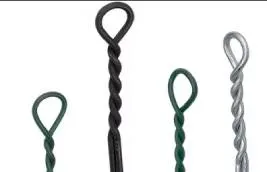-
 Phone:
Phone: -
 Email:
Email:

Durable PVC Insulated Electric Wire for Safe and Efficient Electrical Wiring Solutions
Understanding PVC Electric Wires An Overview
Electric wires are the lifeblood of modern electrical systems, facilitating the safe and efficient transfer of electricity to power our homes, industries, and devices. Among the various types of wiring available, PVC (Polyvinyl Chloride) insulated electric wires stand out due to their versatility, durability, and cost-effectiveness. This article delves into the characteristics, advantages, and applications of PVC electric wires, shedding light on why they are a popular choice in both residential and industrial settings.
Characteristics of PVC Electric Wires
PVC electric wires typically consist of a conductive copper or aluminum core that is coated with PVC insulation. The PVC insulation serves a dual purpose it protects the wire from environmental damage and electrical faults, while also ensuring safety by preventing accidental contact with the conductive core. PVC itself is a synthetic plastic polymer known for its robustness and resilience, making it ideal for electrical applications.
One of the distinct characteristics of PVC is its excellent resistance to moisture, chemicals, and abrasion, which is crucial for wires used in varied environmental conditions. Furthermore, PVC can withstand a wide range of temperatures, making it suitable for both indoor and outdoor applications.
Advantages of PVC Electric Wires
1. Safety PVC insulation provides a high degree of safety, reducing the risk of electrical shocks and short circuits. Its flame-retardant properties ensure that even in the event of overheating, the wire is less likely to ignite or propagate flames.
2. Affordability Compared to other types of insulation materials, PVC is cost-effective. This affordability makes PVC electric wires a popular choice for extensive wiring projects, especially in residential buildings.
electric wire pvc

3. Flexibility and Ease of Installation PVC wires are lightweight and flexible, making them easy to handle and install. Electricians appreciate the ease with which these wires can be run through tight spaces or around corners, reducing installation time and labor costs.
4. Variety PVC electric wires are available in various sizes and configurations to meet different application needs. From low-voltage household wiring to high-voltage industrial applications, there is a PVC wire variant suitable for most requirements.
Applications of PVC Electric Wires
PVC electric wires are widely used across a range of applications. In residential settings, they are commonly used for wiring lighting fixtures, power outlets, and appliances. Their durability and resistance to environmental factors make them suitable for outdoor installations, such as garden lights and external sockets.
In commercial and industrial sectors, PVC insulated wires are employed in machinery, control panels, and various equipment where electrical connections are essential. Their ability to operate under different temperatures and in harsh environments also makes them ideal for industrial automation and processes.
Additionally, PVC electric wires play a crucial role in telecommunication systems. They are used in the wiring of telecommunications equipment, ensuring reliable connectivity in homes and businesses alike.
Conclusion
In conclusion, PVC electric wires are a vital component of our electrical infrastructure, offering a combination of safety, cost-efficiency, and versatility. Their ability to withstand diverse environmental conditions and their ease of use make them a preferred choice among electricians and engineers. As electrical technology continues to evolve, the demand for reliable and efficient electrical wiring remains paramount, and PVC electric wires are likely to remain a key player in the industry for years to come. Whether for home renovations or large-scale industrial projects, these wires are indispensable in powering our modern world.
-
Wire Mesh for Every Need: A Practical SolutionNewsJul.25,2025
-
Steel Fences: Durable, Secure, and Stylish OptionsNewsJul.25,2025
-
Roll Top Fencing: A Smart Solution for Safety and SecurityNewsJul.25,2025
-
Cattle Farm Fencing Solutions for Maximum SecurityNewsJul.25,2025
-
Affordable Iron Binding Wire SolutionsNewsJul.25,2025
-
Affordable Galvanized Wire SolutionsNewsJul.25,2025
-
Wire Hanger Recycling IdeasNewsJul.25,2025








